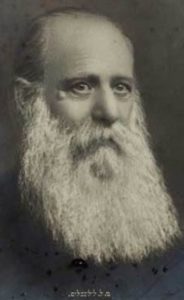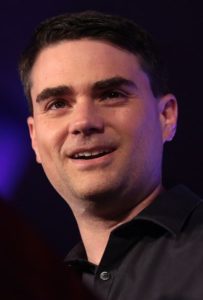Hovevei Zion, The “Lovers of Zion”
Shmuel Mohilever (1824-1898) was born in what is today Belarus to a deeply religious family. He studied at the famed Volozhin Yeshiva and became a rabbi. Violent pogroms against Jews in Russia in 1881, followed by the antisemitic May Laws of 1882, convinced Rabbi Mohilever that Jews would never be safe in the diaspora and must return to their ancestral home. In 1882, he took a trip to Paris to meet with Edmond James de Rothschild and convinced him to fund Jewish settlements in the Holy Land. While chief rabbi of the town of Bialystok, Rabbi Mohilever would inspire Jews in his community to make aliyah. In 1884, he joined a group of leaders in Katowice (then in Prussia, today in Poland) to formally establish Hovevei Zion, the “Lovers of Zion”, into an organized movement. At the meeting, he was elected president while Leon Yehuda Leib Pinsker (1821-1891) was elected secretary. Pinsker was born to a secular Russian-Jewish family in what is today Poland. He was one of the first Jews to attend Odessa University to study law. However, restrictions on Jews becoming lawyers made him switch to medicine and Pinsker became a physician. At first, Pinsker believed Jews must assimilate into European society and that this would end antisemitism. He soon saw that this was not working at all, and concluded that antisemitism is a misnomer; the proper term should be “Judeophobia”, since fear and hatred of Jews is irrational, deep-seated, and essentially incurable. He started writing articles to convince Jews to move to their homeland, since everywhere else they would inevitably be hated. He worked closely with Moshe Leib Lilienblum (1843-1910) who, like Rabbi Mohilever, was born to a deeply religious Russian-Jewish family. Lilienblum was a noted Jewish scholar from a young age, and soon founded and headed a yeshiva in Vilnius. With time, however, he saw that poverty and persecution in exile was destroying his people. He became a committed Zionist, recognizing that the only solution for the Jewish people is to return to Israel and establish their own independent state. Lilienblum wrote a great deal of early Zionist literature. When Rabbi Mohilever distanced himself from Hovevei Zion because it was becoming too secular, Lilienblum took over as president. Hovevei Zion went on to convince countless Jews around the world to take up the Zionist call, and founded the cities of Rishon LeZion, Hadera, and Rehovot in Israel. Rabbi Mohilever, meanwhile, set the stage for the Mizrachi religious Zionist movement. He made sure that Jewish settlement in Israel conformed to Jewish law. The town and kibbutz of Gan Shmuel in Israel was founded in his honour in 1895.
Video: The Hidden History of Zionism
Words of the Week
To the living, the Jew is a corpse; to the native, a foreigner; to the homesteader, a vagrant; to the proprietary, a beggar; to the poor, an exploiter and a millionaire; to the patriot, a man without a country; for all, a hated rival.
– Leon Pinsker




